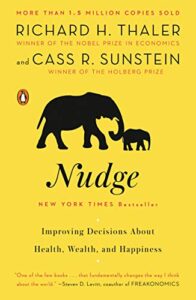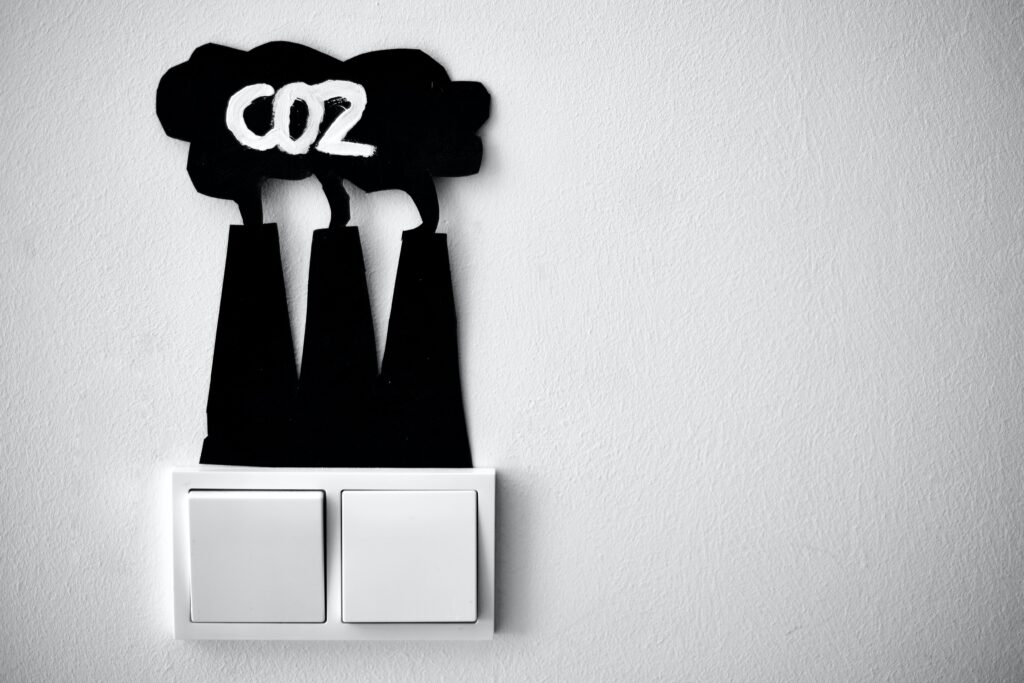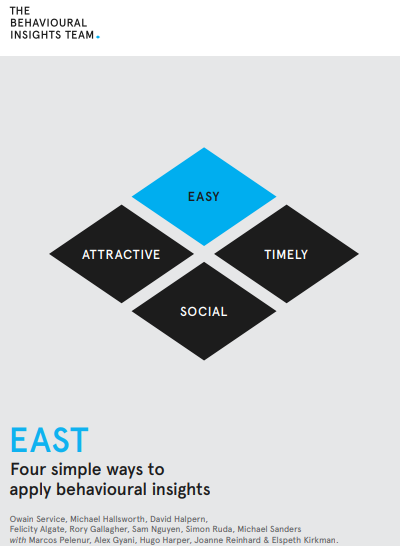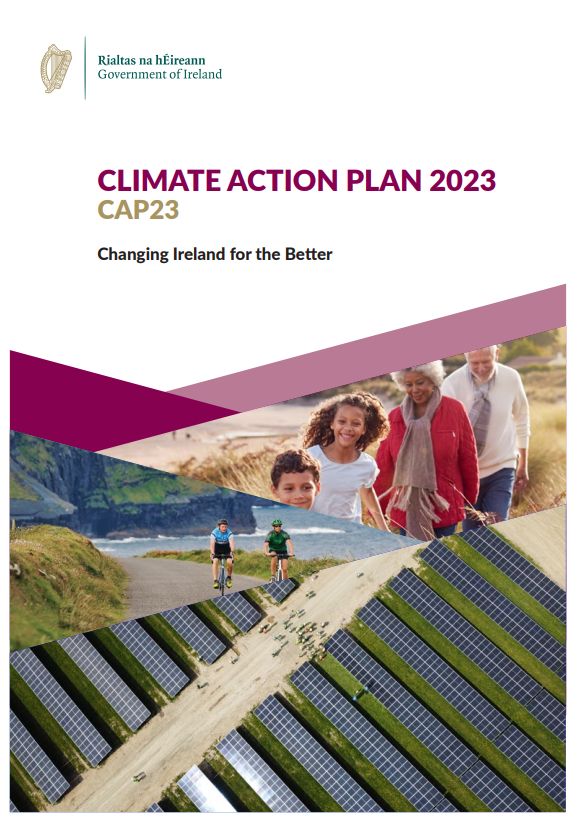Defining well-being, nudges, sludge, and ethical frameworks for policy interventions with Dr Leonhard Lades (School of Architecture, Planning & Environmental Policy)

Dr Leonhard Lades
UCD School of Architecture, Planning & Environmental Policy
UCD Profile
Q. Your work is at the intersection of a few different disciplines from economics to psychology to environmental policy. What was your route to these interests coalescing?
A. I started studying economics, as pure as it gets. Economics, as in thinking of how firms and people make rational decisions. Everything was math in my postgraduate degree, and I was quite good at math at that time. But I got frustrated because I did not understand much of the economics section in the newspaper after having studied economics.
An opportunity arose when I identified a PhD position for people who are a little bit frustrated with economics as well, in a group called the “Evolutionary Economics” Group and the Graduate School for “Human Behaviour in Social and Economic Change” in Jena in Germany.
In that interdisciplinary environment, I moved relatively quickly into economic psychology and behavioural economics. In these fields, we think about how we can improve the psychological realism of the way we actually make decisions rather than assuming we are rational utility maximisers. I always thought rational utility maximisation is a good approximation for some behaviours but not for all of them, especially not for those that I had been engaging in and had seen many friends engage in.
After my PhD I found a research group working in behavioural science, the Stirling Behavioural Science Centre in Scotland led by Liam Delaney. They were economists and psychologists who would be open to working together on policy relevant topics. So that’s where the policy angle came in. I got really interested in using a combination of economics and psychology to inform policy.
I realised that it’s important to focus on a specific area when you do policy relevant work. I made a conscious decision to pick the area that I’m most interested in and that has the most potential. That was the environment, so I started working more on environmental topics. I had a great opportunity on an EPA funded research fellowship in Dublin in 2017 and I moved to Ireland to work as a senior research fellow for two years.
Since then, I have been working on environmental topics. In 2019, I became assistant professor here at UCD in Environmental Policy. Now I lead the behavioural science and policy research group at the Geary Institute for Public Policy. That was always the idea, to take my behavioural science background and apply it to environmental policy.
“It’s important to focus on a specific area when you do policy relevant work. I made a conscious decision to pick the area that I’m most interested in and that has the most potential. That was the environment, so I started working more on environmental topics.”
Q: Where did you do the initial EPA fellowship?
A. It was at EnvEcon which is a small environmental consultancy, run by Andrew Kelly. A great place to work. I was four days a week there and one day a week at Geary, so I never really left the academic world. We published papers and I had a lot of time and help to familiarise myself with the environmental policy landscape in Ireland and write papers on different topics and different sectors.
Q. Tell us about the behavioural science research group at Geary
A. The group was founded by Liam Delaney, who is also the reason I moved here. He is a co-author and friend – and then he left! He went to London, to become the head of the department of Psychological and Behavioural Science at the London School of Economics. It’s a great job, so fair enough! When he founded the group at UCD, it was relatively small and tight knit. Then I took over and I decided to make it broader. The group has increased, the network is still increasing.
Everybody in UCD and beyond who is interested in behavioural science is welcome to join. We have internal meetings, guest presentations, the research group gives comments on new ideas. Sometimes the group destroys ideas at the very first meeting, which is great because you don’t waste time. We organise external seminars and workshops. We have an annual conference. I’m focusing personally on environmental behavioural science, but others focus on other areas.
Q. Is there quite a mix of disciplines?
A. Yes it’s got quite big now. We have computer science, business, economics, environmental policy, surprisingly not many psychologists. If any psychologists want to join, please reach out!
“For instance, if you have a new energy provider and you are automatically enrolled in green energy, and you can just opt out and choose the fossil fuel energy – most people don’t do that, they stay with the default green option. There are studies that show that this has massive effects, this default setting to opt people in.”

Q. Is behavioural science becoming more popular as an approach, in particular around environmental policy?
A. It’s becoming extremely popular. The most popular tool is called nudging. Around fifteen years ago, a book called Nudge: Improving Decisions about Health, Wealth and Happiness by Richard Thaler and Cass Sunstein was published, and David Cameron in the UK told everyone to read it. It was an interesting time, there were many TED talks about nudging, and it became really fashionable. Liam, myself and some others we were always a bit critical that it was perhaps a bit too TED talk-y, too flashy and so on.
More recently, it is becoming very popular in the field of environmental policy and sometimes for good reason. For instance, if you have a new energy provider and you are automatically enrolled in green energy, and you can just opt out and choose the fossil fuel energy – most people don’t do that, they stay with the default green option. There are studies that show that this has massive effects, this default setting to opt people in. It seems that people, for many decisions that are not that important for them, follow the ‘yeah whatever’ heuristic. They go with the default.

Nudge: Improving Decisions about Health, Wealth, and Happiness
Cass R. Sunstein and Richard H. Thaler (2008)
Then there are other areas. I’m often complaining about how difficult it is to recycle in some places, because the signage is not good. You can easily make good signage. There are many low-hanging fruits to change behaviour and we are having discussions about these in the field right now.
So, nudging is one tool in the behavioural science policy toolbox. There are many other tools but maybe looking into specific tools is not even the right approach. For the last two years or so, the field of behavioural science is thinking more and more about how we can go beyond nudging.
Some people talk about a “behavioural science lens”. We can, for example, look at environmental problems through a behavioural science lens. Rather than trying to find an intervention or a nudge, we can think of big issues such as the carbon tax and how we can make the carbon tax work better. You can call it something different or do a public acceptability study.
You just approach it from a different behavioural angle, not the angle that economics has always pushed for, which is to just get the incentives right and everything is fine. It doesn’t work if people don’t like the policy or if the price signal is too hidden. You need to have a behavioural science angle to almost all policy questions.
“Some people talk about a “behavioural science lens”. We can, for example, look at environmental problems through a behavioural science lens. Rather than trying to find an intervention or a nudge, we can think of big issues such as the carbon tax and how we can make the carbon tax work better… You just approach it from a different behavioural angle, not the angle that economics has always pushed for, which is to just get the incentives right and everything is fine.”

Q. What is different about the behavioural science approach?
A. Because most of the policies in the environmental sector and other sectors were driven by economists, sometimes lawyers, we behavioural science is in part defined in contrast to what the economic view on how humans behave is. That view is that people are hyper rational. If so, setting the incentives right is key. Make things more expensive and people do it less, make things cheaper or subsidise and people will do it more. That’s more or less it. There are a few other things of course.
But we started to acknowledge more and more that we are not always making every decision in our everyday lives in an optimal way. This is not because we are stupid, but because the world has become, or maybe always was, so complicated. In such a world it’s crazy to think that someone can make rational decisions all the time. This is an unrealistic picture, but lots of polices have been based on this idea of hyper-rationality.
Once you think that here and there we are making decisions that are not perfect, you can take the next step and ask, okay what are the factors that influence our decisions in predicable ways. Often these factors are related to the context in which we make decisions, how a website is designed, what the default is, and other choice architecture factors. Nudges are changes of these contextual factors.
So once we depart from the idea that we are hyperrational abstract robots, we can be much more creative in terms of policy design. Because suddenly we realise that context factors matter, we can change these context factors. That’s the unique idea of behavioural science and why it has gathered so much momentum. You can do relatively small interventions with potentially big effects.

“I don’t want to engage in rational actor bashing too much. Assuming that people are rational is a simplification of the world and in some situations, it is a good simplification, it makes our life as economists easier, and we can make good predictions. For some situations, it’s not. For instance, if we only focus on rational decision making, we forget about defaults. Defaults are important. But still, if you think about reactions to coffee prices increasing, of course we buy it less.”
Q. How is the individual’s internal world factored into behavioural science?
A. I don’t want to engage in rational actor bashing too much. Assuming that people are rational is a simplification of the world and in some situations, it is a good simplification, it makes our life as economists easier, and we can make good predictions. For some situations, it’s not. For instance, if we only focus on rational decision making, we forget about defaults. Defaults are important. But still, if you think about reactions to coffee prices increasing, of course we buy it less. The rational actor model is sufficient to explain that. The question is when doesn’t it make sense and what do we miss if we don’t look at departures from this?
The other thing is that understanding the internal world is probably more psychology, trying to understand how we feel, how we make decisions. There are different forms of psychology, they try to look inside the human to some extent. Behavioural science could be described as applied psychology in the sense that we get all these insights and then we see what they mean for what actually happens outside the person.
Some psychologists don’t care about policy and external processes, and that’s fair enough. You know it’s important to understand how we make decisions, how we feel and so on. But behavioural scientists and especially behavioural economists care about the economy and what behavioural insights mean for real world behaviour.
Q. How does the behavioural science world engage with research on well-being?
A. There are at least two policy-related streams of literature within behavioural science – one is behavioural change, nudging and so on, and the other one is well-being policy. Well-being policy tries to help us pick the policies from your overall toolbox. Is says that we can look at the effects of policies on how they make us feel and then we pick the policies that make us feel best, that increase our life satisfaction. This is a very interesting one, I did a little bit of research on this, but I am not an expert. The key question here is: how do we identify what a good life is? Well-being policy says that we can just ask people. I mean it has disadvantages, but maybe we can get some way with that
“The best nudge proposed by Richard Thaler, one of the founding fathers of behavioural economics and a Nobel prize winner, is simplification. If you want to encourage a behaviour like recycling, for instance, make it simple. The Behavioural Insights team in the UK said came up with the EAST – Easy Attractive Social and Timely framework to communicate this idea.”

Q. You’ve talked about nudge but I know you also work on sludge. Could you first define nudge a little bit more, then talk about sludge in relation?
A. A nudge is an intervention that steers your behaviour in a particular direction, for example the green direction, without mandating your choice or changing incentives. You can still do whatever you want to do, there is still some form of liberty / freedom preserving element, but you are pushed a little bit in a direction. Like with a default option. Pushed in one direction but you can go your own way if you like to.
The best nudge proposed by Richard Thaler, one of the founding fathers of behavioural economics and a Nobel prize winner, is simplification. If you want to encourage a behaviour like recycling, for instance, make it simple. The Behavioural Insights team in the UK said came up with the EAST – Easy Attractive Social and Timely framework to communicate this idea. Make it easy by for example simplifying, make it attractive by for example showing nice pictures or whatever, make it social by for example showing that other people are engaging in a behaviour as well, and make it timely by for example intervening at the moment of choice, not at Christmas for instance.
Q. It’s sort of obvious but it seems very true
A. Yeah when you have the graph with the EAST framework, you can apply it to almost anything. Just make it easy. Get rid of the complications.
Q. And sludge?
A. Sludge is the opposite of EAST. Sometimes things are difficult, unattractive, asocial and come at the worst time. That’s sludge. These are all these things that put you off. Sludge is defined as unnecessary or unjustified friction. I think it’s perhaps even more important than nudge. Some of these frictions are created by companies. Others appear totally unvoluntary, they just happen, because processes build up and suddenly you must do three hours of paperwork to get a small grant or something. But sometimes the private sector uses sludge to make profit and people are harmed.
The biggest applications of sludge are in areas related to benefit programs. I got interested in sludge in the context of climate policy. I started a project funded by the EPA on sludge reduction – administrative burdens that prevent us from achieving the targets specified in the Climate Action Plan. There are hundreds of targets in the 2023 Climate Action Plan. Some of them won’t be archived because there are too many forms to fill out. There are licenses you can’t get so you can’t grow trees. Local Authorities do not apply for Electric Vehicle chargers on the street from the government, although the money is there, because the process is too complicated, and they don’t know what to do. Try to get a retrofit grant without being annoyed by the paperwork.

Q. If you could just remove the sludge, the idea is that these things would happen?
A. That’s it, I hear these stories about people being annoyed by administrative processes all the time. Then I looked for research on this, and there’s almost no research. There’s no literature about this. So my idea was: let’s look at the research on sludge and apply it to the Climate Acton Plan. We just started the project.
If you study economics, you don’t believe that small changes will have a massive impact, because everybody is more or less rational and when there is a ten-minute form to complete it doesn’t matter. But when you acknowledge that people are sometimes a bit lazy or maybe have so much else on their agenda, children, stressful days, and so on, then these ten extra minutes to complete a form are suddenly very important. People call it cognitive scarcity.
Q. Some people believe nudging could be unethical if used in certain ways. You established the Nudge FORGOOD ethics framework with Liam Delaney, what does this aim to do?
A. Ten years or so ago we got interested in the literature about why nudging is horrible, which is written mainly by ethicists and philosophers. The literature was about nudging in general. But we thought that one nudge is so different to another nudge. We were a bit frustrated by the general nature of the arguments in this literature.
Then there was more research coming out that says: okay at least we have to look at nudges case by case. Some nudges might be okay and others not. Then we thought okay that’s good, but the researchers are not the important people here, but the people who apply nudges, the applied behavioural scientists or behavioural public policy people. How can we translate this relatively abstract literature on the ethics of nudging on a case-by-case basis to the real world?
So we came up with the FORGOOD framework. We called the paper Nudge FORGOOD but I think It can be applied to any other type of behavioural influence or some other influence that is not behavioural as well. The idea is that you consider Fairness, Openness, Respect (for various things, for people’s preferences, privacy, dignity and so on), Goals, Opinions, Other Options (maybe you should consider other policy designs, use a carbon tax instead of a little label to buy fewer throwaway cups) and Delegation. It’s used quite well by large international institutions and teaching all over the world.
Q. How was nudging received across different countries/contexts?
A. It’s very different across different nations. For instance in the UK it’s quite positive, although they had problems during Covid. In Ireland it’s generally positive, maybe we are inspired by FORGOOD. Pushback can come from the Delegation aspect – who are you to change others’ people behaviour? FORGOOD encourages nudger to reflect on the power that was delegated to you. Are you working with people or changing their behaviour top-down?
Germany is different. People in Germany don’t use the word “nudging” in government ever. They don’t have a nudge unit; they have a “boost unit”. Boosts are behavioural policies that aim to increase people’s competencies, making them better decision makers. It’s a related but different concept. Boosting was inspired by the criticism of nudging that it is not respecting people’s autonomy.
Some people in Germany say nudge is like herding people as if they were sheep. For me, if you engage in nudging in an ethical way, FORGOOD, there shouldn’t be these issues. You respect autonomy, this basically means you respect people’s decisions. It’s not like herding people like sheep. But in Germany you can’t touch it because people will tell you you’re a shepherd.
Q. Finally, you also work on something called present bias – what is it and what might the implications be for sustainable behaviour?
A. Present bias is when what everything you do right now in the present moment is really important to you. The future is less important. There’s a really heavy emphasis on the here and now. Often, it’s bigger than you expect it to be. The typical example is the gym. Will you go to the gym tomorrow? Yes, for sure. Will you go right now? Eh, no.
The cost benefit evaluation is very different depending on the timing of the costs and benefits. When costs are in the present, they are so important. Binge watching is another example. Will I binge watch tonight? Right now, during the daytime, you say no. But in the present, later on tonight, you totally will. It’s the economist’s way of conceptualising self-control problems. You make decisions for the future when you are not biased, because you’re not in the present. But then there is an element in the present – oh yeah, I want to have a burger rather than go to the gym.
Procrastination is one thing that results from present bias. That’s relevant for environmental policy making as well. Say you have to fill out a form, it takes you two hours to fill out a form to get a retrofit and you might save €10000 euros. Two hours for €10000 is good you should do it. But then comes the question: Should you complete the form today or tomorrow? If you’re present biased, you kind of prefer to fill out the form tomorrow. Then the question is not: do you fill out the form at all? But do you fill out the form today or tomorrow? And it’s often tomorrow.
If you’re then what in economics we call “naïve”, as in you are present biased but you don’t know you are, so you cannot predict that tomorrow you will do the same thing, it goes on forever. That comes back to sludge, all of these tiny hassles, tiny annoyances. When people are present biased, the annoyances have a massive influence on behaviour. If you’re not present biased, if you’re living in the rational world, it’s a bit of a hassle, it’s annoying, but its fine, no big deal. But once you’re present biased and don’t know about the influence of these hassles, they will be massively important for behaviour change and it’s really important to think about these small aspects of daily life that have a large influence on our behaviour.


